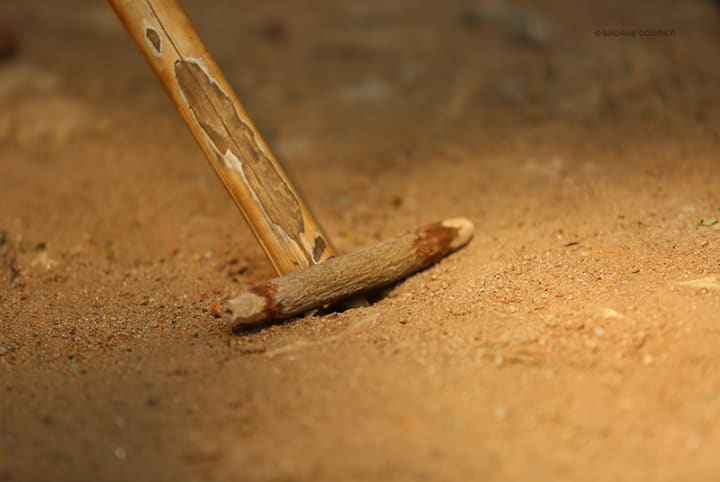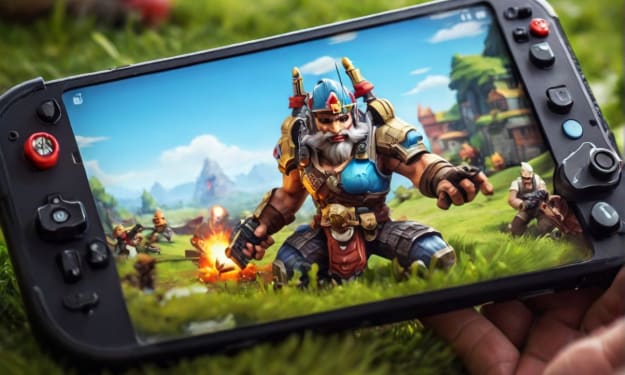Gilli Danda, Indian Sport
Gilli Danda is a traditional Indian game played with two wooden sticks that has several regional variants.

Gilli Danda (also spelt Gulli-Danda), also known as Viti Dandu, Kitti-Pul, and by other variations, is a game that originated on the Indian subcontinent and is now popular throughout South Asia, as well as in countries like Cambodia, Iran, Turkey, South Africa, Italy, Poland, and some Caribbean islands like Cuba. Baseball and cricket are two examples of the games that use two sticks.
An ancient Indian sport called Gilli Danda may have been practiced more than 2500 years ago. It is thought to be where Western sports like baseball, softball, and cricket got their start.
What you'll need for Gilli Danda is
For this game, you'll need two wooden sticks. Gilli is a little wooden object that is 1-1/4 inches in diameter in the middle and tapered at both ends. It is 3 1/2 inches long. A two-foot long, one-inch-diameter rod called a danda that resembles a circular ruler. You may order one from any carpentry shop.

It is drawn a four-foot-diameter tiny circle. A tiny, oblong-shaped hole is excavated in the center; it should be smaller than the gilli.
Names
- Karakotty, Kutty-Kole – Kerala
- Kittika – Hindi language
- Kittipul – Trichy District
- Gilli-Tanda – Maharashtra
- Gilli-Tandu – Coimbatore
- Kuchikambu, stick-beating – a common practice in Tamil Nadu
- Gully-Danda – Bengal
- Silata – Nilgiris border
- Chilanguchi – Nellai District
- Dibley – Gond people of Andhra state
- Pullukity, Singampule – Kumari District
Rules
"Gillidanda" is played with two pieces of equipment – a danda, being a long wooden stick, and a gilli, a small oval-shaped piece of wood. It is played with four or more players of even numbers. Standing in a small circle, the player balances the gilli on a stone in an inclined manner (somewhat like a see-saw) with one end of the gilli touching the ground while the other end is in the air. The player then uses the danda to hit the gilli at the raised end, which flips it into the air. While it is in the air, the player strikes the gilli, hitting it as far as possible. Having struck the gilli, the player is required to run and touch a pre-agreed point outside the circle before the gilli is retrieved by an opponent. There are no specific dimensions of gillidanda and it does not have a limited number of players.
The gilli becomes airborne after it is struck. If a fielder from the opposing team catches the gilli, the striker is out. If the gilli lands on the ground, the fielder closest to the gilli has one chance to hit the danda (which has to be placed on top of the circle used) with a throw (similar to a run out in cricket). If the fielder is successful, the striker is out; if not, the striker scores one point and gets another opportunity to strike. The team (or individual) with the most points wins the game. If the striker fails to hit the gilli in three tries, the striker is out (similar to a strikeout in baseball). After the gilli has been struck, the opposing players need to return to the circle or, in the best case, catch it in mid-air without it hitting the ground – this was believed to have later evolved into a Catch Out in cricket and baseball.
Variations
As an amateur youth sport, gilli danda has many regional variations. In some versions, the number of points a striker score depends on the distance the gilli falls from the striking point. The distance is measured in terms of the length of the danda, or in some cases the length of the gilli. Scoring also depends on how many times the gilli was hit in the air in one strike. If it travels a certain distance with two mid-air strikes, the total points are doubled. If the gilli is not struck far enough the player has to pick it up and try again. Shobhit Maurya is a world champion of gilli danda at present with several world records in his name. The UNESCO Advisory committee and the International Council of Traditional Sports and Games (ICTSG) are keen to revive and promote all such traditional sports which are almost dying in the World.





Comments
There are no comments for this story
Be the first to respond and start the conversation.